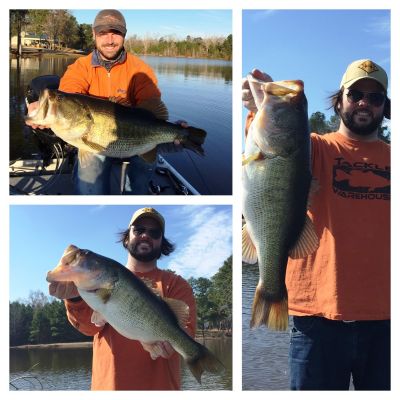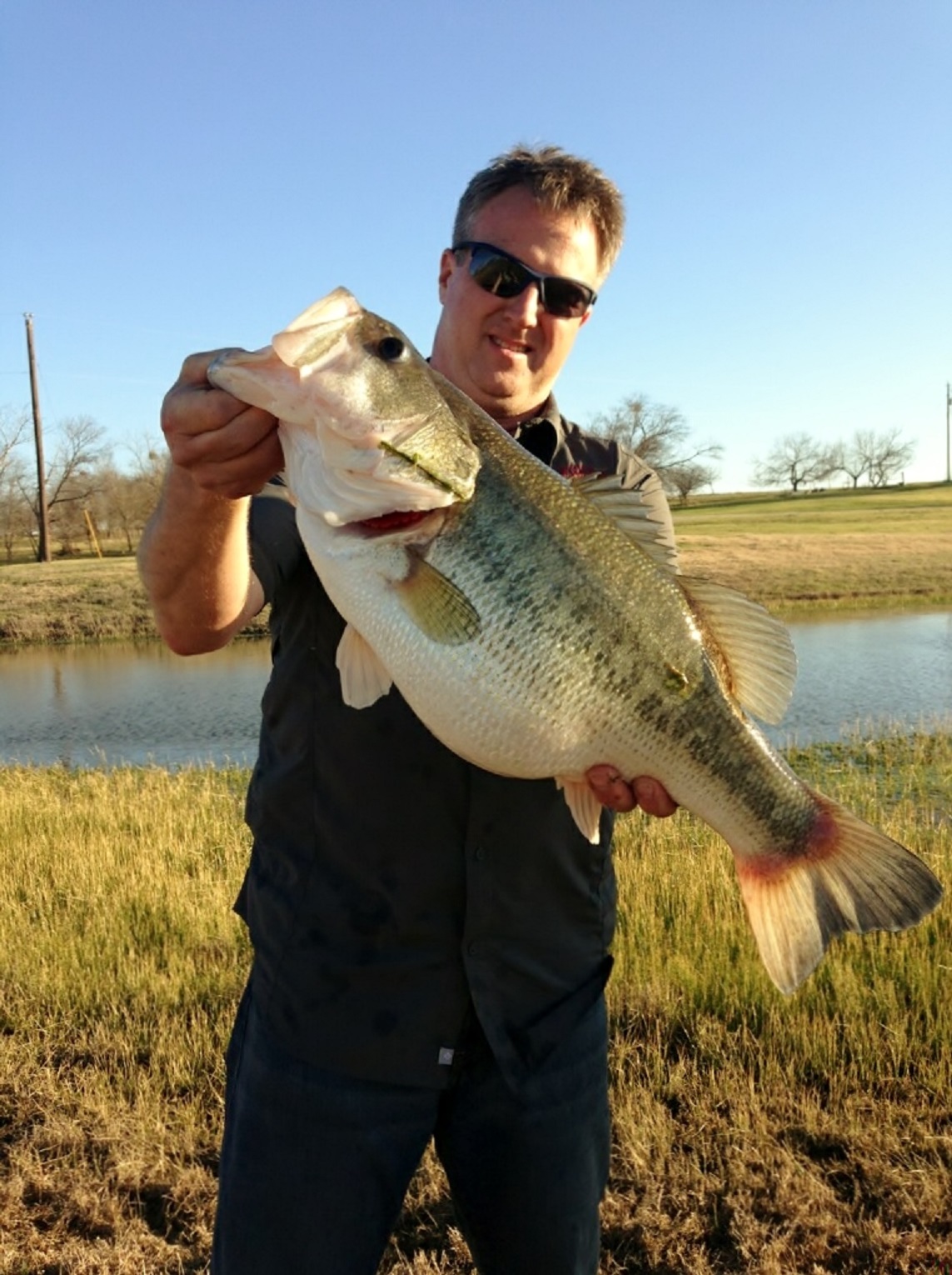Mar 06 2015
Steve Alexander
Admin
Long Branch Yates has always been known as a big fish lake. Well it strikes again. Member Zach Turner and his guest landed a 9.3, 8.1 and a 7 lb fish on Feb 13th. That morning a cold front came through a dropped the temp to 30 degrees, but they were able to locate fish on their sidescan and had to cast within 2 feet of the fish to coax them to bite. See pictures below. 2 weeks later Greg Davis was fishing by himself and landed another 9 lber. The spawn will be late this year, probably at least 2 weeks later.

Posted By: Steve Alexander

Mar 06 2015
Frank James
Fingerling
Member Since :
2005
Number of Posts :
86
Magnificent fish! Gets my juices flowing for a trip, that's for sure.
One caveat: Holding big bass just by the jaw will likely break their jaw. This happened to a recent 14.3 lb bass caught on a private lake in Texas that was sent to the Share a Lunker people and died.
Large bass should always be held by wetted hands supporting them underneath the front and the belly. At least, if you wish to keep them alive!